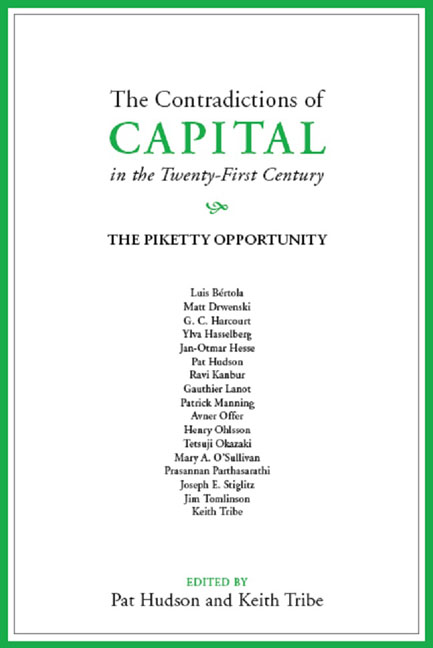3 - Inequality
Published online by Cambridge University Press: 16 August 2023
Summary
Rising inequality in the distribution of income in advanced economies became a widely debated issue in the wake of the financial crisis that began in 2008. The Occupy movement and demonstrations in leading global financial centres against the concentrated wealth of “the one per cent” reflected a widespread feeling that the bankers and financiers whose activities had prompted the crisis not only failed to accept any responsibility, they also suffered little from its effects, since troubled financial institutions across the world were propped up by national governments and their taxpayers. In this context, the novelty of Thomas Piketty’s Capital in the Twenty-First Century lay in his argument that an increasing polarization in the distribution of wealth and incomes was not simply associated with the wave of financial market liberalization that had taken place since the 1990s, culminating, but not ending, in the crash of 2008; but was instead part of a much longer-term, and global, trend. He presented his findings as a revision of the “Kuznets curve”: the idea that while industrialization in the nineteenth century had been characterized by increasing income inequality, during the first two-thirds of the twentieth century polarization had diminished, a sequence of events represented by an inverted U-shaped curve of income distribution over time.
Further, Piketty’s prime focus appeared to be on wealth rather than income, broadening the base of his analysis. The broad aggregates that he deploys conceal a great deal: who the holders of great wealth are, how those people came by their wealth, and of what that wealth consists; the range of incomes around the median, and their distribution by race, age and gender; the differing ways in which households are poor, and the differing costs of being poor between countries in terms of access to clean water, housing, health care and education. All the same, a focus on the existing distribution of wealth and income within a national economy as part of a long-run trend is a start, and the interest that Piketty’s book aroused demonstrated the extent of public concern.
Modern economists have generally paid relatively little attention to wealth, inequality and distribution; Piketty has moved these concerns up the public agenda, but his work is nonetheless rooted in research and publication by economists reaching back to the 1960s.
- Type
- Chapter
- Information
- The Contradictions of Capital in the Twenty-First CenturyThe Piketty Opportunity, pp. 29 - 52Publisher: Agenda PublishingPrint publication year: 2016
- 1
- Cited by



